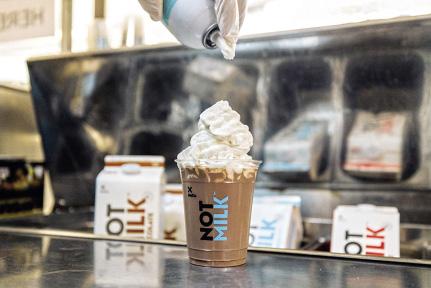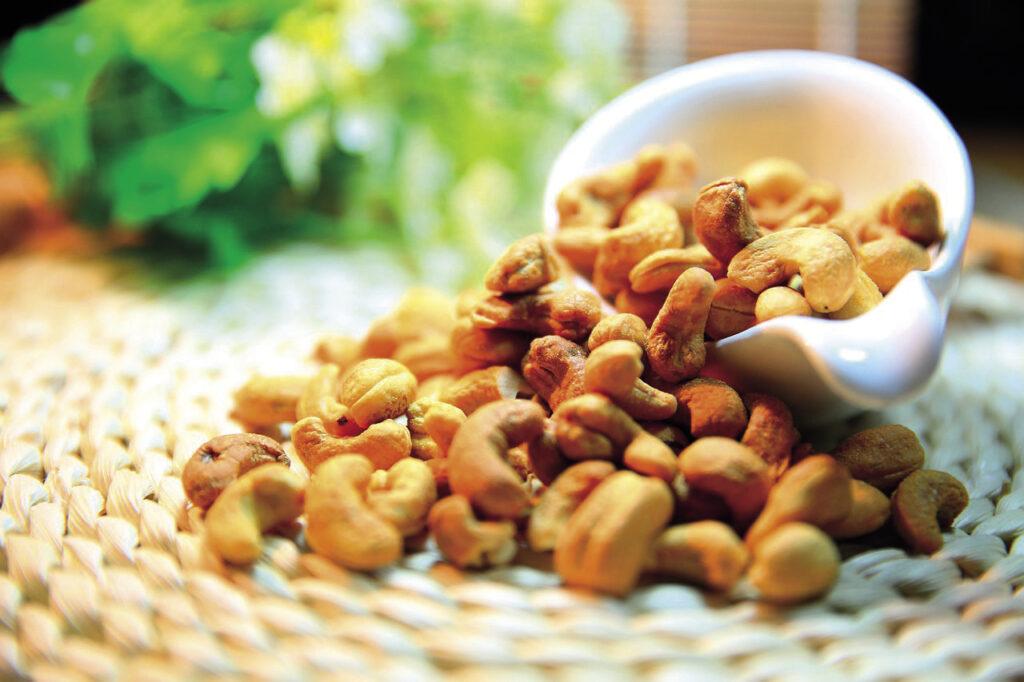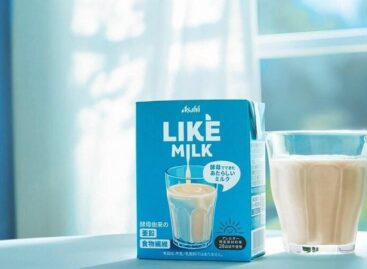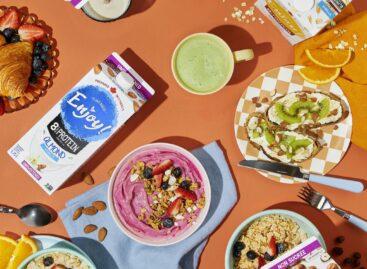Dairy substitutes: product developers are focusing on hybrid concepts and price parity
Once limited to soya milk, plant-based dairy alternatives are now much more diverse in terms of ingredients and formats: a wide range of non-dairy cup and drinkable yogurts, cheeses, creams and butters can be found on store shelves, made from almonds, cashew nuts, coconut, rice and oats.
This article is available for reading in Trade magazin 2024/5
Growing and more sophisticated product range
Product developers have been quick to adapt to the new trends in plant protein ingredients, and they are also responding to e-commerce trends and sustainability demands with products that have a longer shelf life, reports Food Ingredients First. Data by Innova Market Insights shows an upward trend, with non-dairy product launches increasing by an average of 11% per year between 2019 and 2023, while the same proportion was 54% for milk substitutes in 2023.
Taste is no longer the only factor
As the product selection is growing and becoming more sophisticated, consumer expectations are changing – taste is no longer the only factor that matters: in line with the “healthy indulgence” megatrend described by Innova Market Insights, which continues to drive consumer choices this year, shoppers are also paying attention to products having a clean label and higher nutritional value. According to Linda Eitelberger, product manager at Planteneers, the initial core range of milk, yogurt and sliced cheese alternatives focused only on taste and texture. However, despite the progress made there are still many misconceptions about alternative dairy products. These include concerns about balanced nutritional content, unknown or ultra-processed ingredients, and scepticism about the sustainability of purchasing.

Consumers expect creaminess, frothiness and stability from milk substitutes, among others
Getting to know hybrids better
Baristas around the world are now also experimenting with alternative dairy products to complement coffee, at least according to Innova Market Insights, which says the trend is particularly prevalent in Europe, where the most new products (58%) hit the shops last year. Besides great taste and texture, consumers expect milk substitutes to be creamy and frothy enough to remain stable in the acidic environment of coffee. Reducing the fat and sugar content of alternative dairy products can have an impact on taste – think of the sour taste of sugar-free or low-sugar yogurts, the watery taste of low-fat milks and milk alternatives, or the vegetal taste of plant-based products. In order to address these challenges, ADM has developed “pure-tasting soy and pea proteins” as the basis for plant-based milk products. TasteSpark has developed taste modulation technology, which restores the creamy mouthfeel and rich flavour that can be lost in low-sugar, low-fat, reduced-dairy or even dairy-free systems.

More products enriched with functional ingredients could appear on store shelves in the coming year
New market niche and price parity
Research by ADM reveals that globally 44% of so-called plant-forward consumers want alternative dairy products to have an improved nutritional profile, so the company says dairy products with more protein, vitamins, omega-3 fatty acids, dietary fibre, and pre- and probiotics will be popular among consumers in the future. More fortified products could appear on store shelves in the coming year, and while all plant-based ingredients offer nutrients in the form of protein, amino acids, omega-3, calcium, fat, dietary fibre and vitamins, Kelco is helping brands to fortify products with its natural-based ingredient portfolio. As the selection of dairy-free alternatives is growing, companies have to communicate to a much wider and increasingly diverse group of consumers. Linda Eitelberger believes it is important for formula developers to target the price parity between animal products and dairy alternatives, and to offer consumers products that meet high expectations in terms of taste, texture and nutritional profile, while being available at an attractive price. //
Related news
World’s biggest dairy company rolls out plant-based brand
🎧 Hallgasd a cikket: Lejátszás Szünet Folytatás Leállítás Nyelv: Auto…
Read more >Related news
New country director at the helm of JYSK Hungary
🎧 Hallgasd a cikket: Lejátszás Szünet Folytatás Leállítás Nyelv: Auto…
Read more >







